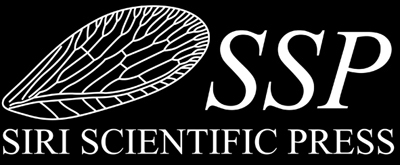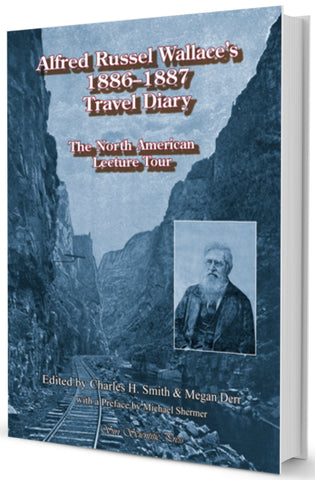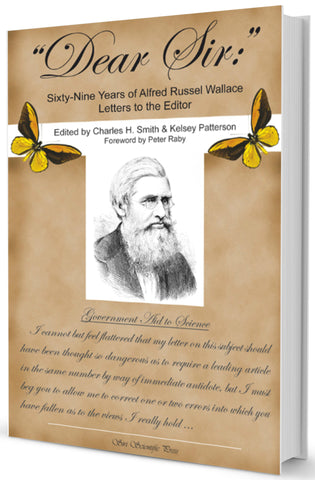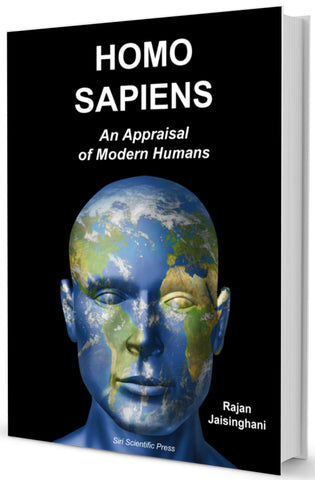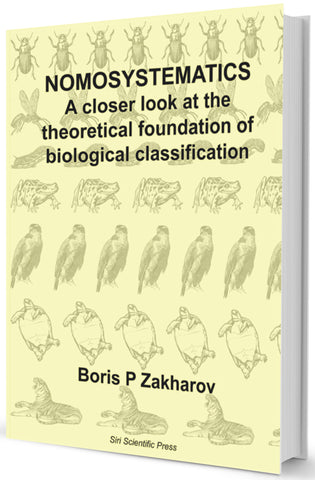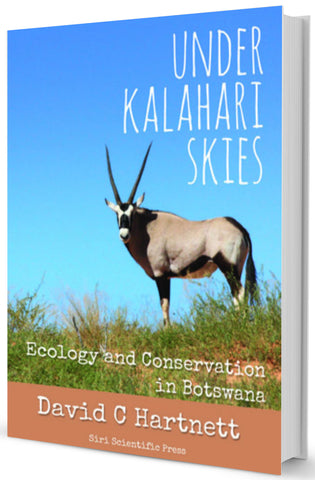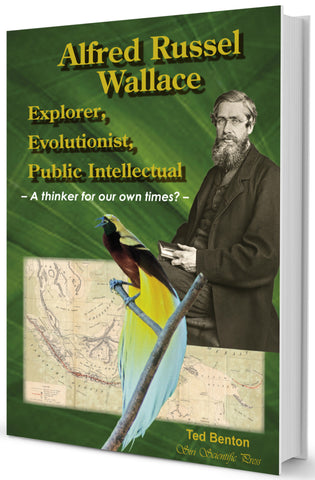
Alfred Russel Wallace: Explorer, Evolutionist, Public Intellectual - A thinker for our own times?
by Ted Benton
Siri Scientific Press (2013) 978-0-9574530-2-9 RRP £21.00
416 pp, 240 x 165 mm, soft cover, 800+ colour photographs & illustrations
IN STOCK - Ships Within 24 Hours
Reviews
Why Evolution is True blog (September 2013): A fascinating new book on Wallace and his ideas. The author is uniquely positioned to understand the richness of Wallace’s ideas. Highly recommended!
Current Biology (2014): Wallace’s reputation has been resurrected with the surge over the past decade in Wallace scholarship and with the recent centennial celebrations, but Benton takes this resurrection much further. Benton’s Wallace is not just an admirable past figure unfairly sidelined by history; rather, he is the prototypical socially engaged scientist with a message that remains today alarmingly relevant.
Archives of Natural History 42.2 (Autumn 2015): Combining expertise in sociology with detailed biological knowledge, Benton offers a stimulating intellectual history of Wallace, regarding him as a prototype of publicly- and politically-engaged science. In an era of discussions about science communication and the uncertain boundaries between professionals and public, Benton’s Wallace offers an instructive (even inspirational) example of how a scientific researcher addressed wide social and political concerns.
Most compelling is Benton’s argument for the relevance of Wallace’s socialist ideas in the current age of rising inequality. Wallace not only raged against the polarization of wealth and poverty but explored practical solutions to counter it. He proposed a detailed model of gradual land nationalization which would ameliorate the growing divide between rich owners and poor tenants. We also see the older Wallace arguing robustly against imperialism and eugenics, and in favour of votes for women. It is hard to imagine another Victorian who combined such deep scientific knowledge and expertise with such wide-ranging sympathies and political commitments.
This book will both serve as a good introduction to Wallace and provoke academic researchers to consider Wallace’s legacy from fresh angles.
From the back cover
Only now is Alfred Russel Wallace beginning to get his long overdue recognition. In his own time he was acknowledged as joint author, with Darwin, of the theory of evolution by natural selection. Since then, the bright light shone on Darwin’s achievements has cast Wallace into shadow. This book shows how Wallace’s independent discovery of natural selection was no mere flash of inspiration, but the outcome of many years of study and reflection on his extraordinary early life as a field naturalist in South America and the rain forests of the ‘Malay Archipelago’. Surviving fever and insect bites on the Amazon, he was shipwrecked with the loss of most of his notes and collections on his return journey. Astonishingly, within two years he was preparing for his second major expedition, this time to South East Asia, and for a stay of eight challenging years. It was here that he made his great scientific breakthrough, and provoked Darwin into prompt publication of his Origin.
Wallace used his experience in the tropics as the basis for his next major achievement – a classic work that established biogeography as a scientific specialism of great importance for today’s urgent challenge to protect the world’s biodiversity. As if this were not enough, Wallace became a bold and controversial public figure, campaigning on such issues as compulsory vaccination, parliamentary reform, and the rights of workers and colonised peoples. He was for many years president of the Land Nationalisation Society, and an ardent critic of the injustices of 19th century capitalism. Later in his life he engaged with radical thinkers such as William Morris, Edward Bellamy, Henry George, Robert Blatchford and Ebeneza Howard in envisaging just and sustainable alternative social and economic futures.
This book gives a succinct account of Wallace’s life, before going on to analyse in more detail the development of his ideas on natural selection, his disputes with Darwin on sexual selection and human evolution, and the development of his political ideas. In each topic, Benton brings the story up to date, and assesses Wallace’s ideas in the light of today’s thinking.
We Also Recommend
